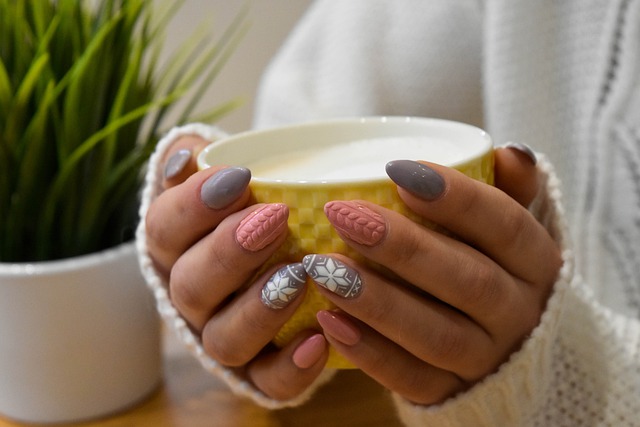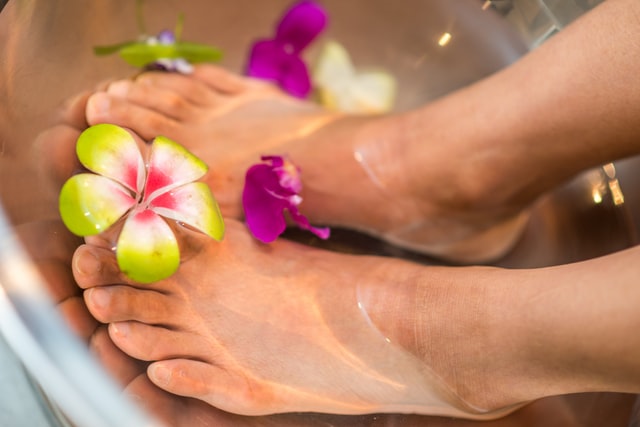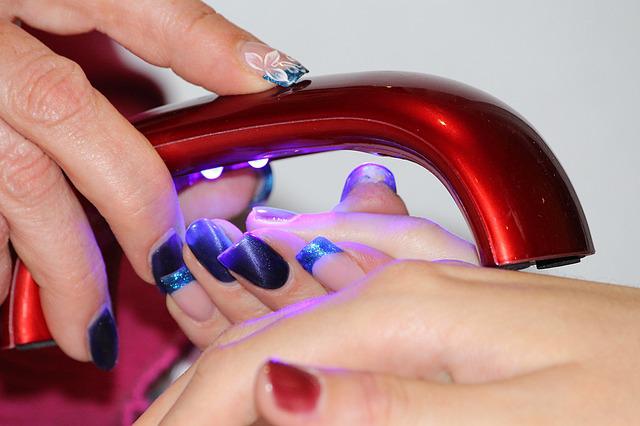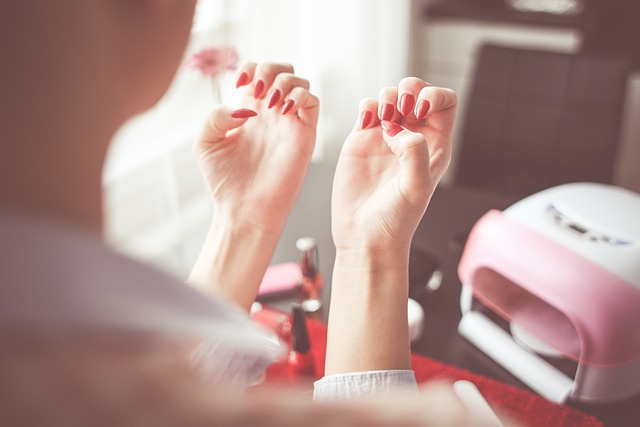You take great care to maintain your overall health, but have you considered the well-being of your fingernails? Fungal infections can easily take hold, causing unsightly discoloration, brittleness, and pain. If you frequently expose your hands to moisture, don't dry them thoroughly, or share personal care items, you're creating an ideal environment for fungi to grow. Even a small cut or nail trauma can provide an entry point for infection. But there's good news: you can prevent and even cure fungal infections. The first step is understanding the common causes – and that's where you'll start to take control. One way to prevent fungal infections and maintain the health of your fingernails is by following weak nails care tips. This may include keeping your nails trimmed and clean, avoiding prolonged exposure to moisture, and using antifungal treatments as recommended by a healthcare professional. By incorporating these practices into your overall health routine, you can enjoy strong, healthy nails and prevent the unsightly and uncomfortable symptoms of fungal infections.
Poor Nail Hygiene Habits
When you don't practice good nail hygiene, you create an ideal environment for fungal infections to take hold in your fingernails. If you don't wash your hands regularly, especially after touching animals, gardening, or using harsh chemicals, you're exposing your nails to potential fungal spores. Not drying your hands thoroughly, especially between the fingers, can also contribute to the growth of fungi.
You also risk getting fungal infections if you don't trim your fingernails properly. Cutting them too short or cutting the corners can lead to small cuts or tears, giving fungi an entry point into your nail. Not disinfecting your nail clippers or sharing them with others can also spread infections. In addition, if you bite or pick at your nails, you're transferring bacteria and fungi from your mouth to your nails. This can lead to fungal growth and infection. Maintaining good nail hygiene is essential to preventing fungal infections.
Overexposure to Moisture
As you focus on maintaining good nail hygiene, it's equally important to be mindful of your daily activities that may be exposing your fingernails to excessive moisture, creating another ideal environment for fungal infections to develop. You may be putting your nails at risk if you wash dishes frequently, work with harsh chemicals, or spend a lot of time in humid environments. When your nails are constantly exposed to moisture, the nail plate can lift, allowing fungi to enter and cause infections.
To reduce your risk, you can take a few simple precautions. When washing dishes, wear gloves to protect your hands and nails from excess moisture. Dry your hands thoroughly, paying special attention to the areas around your nails. If you work with chemicals or spend a lot of time in humid environments, consider wearing protective gear or taking regular breaks to dry off. By being mindful of your exposure to moisture, you can take a proactive step in preventing fungal infections from developing in your fingernails. Regularly inspect your nails for signs of infection, and address any concerns promptly.
Sharing Personal Care Items
Your nail care routine can put you at risk of developing a fungal infection if you're sharing personal care items, such as nail clippers, files, or buffers, with others. When you share these items, you're also sharing bacteria and fungi that can easily spread from person to person. If someone has a fungal infection, they can transfer the fungus to you through these shared items.
You might think that a quick wipe with a disinfectant wipe is enough to clean the item, but it's not. Fungi can be stubborn and survive on surfaces, waiting to infect their next victim. To avoid this risk, it's best to use your own personal care items and not share them with anyone. If you do need to share, make sure to properly sterilize the item by soaking it in a mixture of equal parts water and bleach for at least 10 minutes. This will help kill any bacteria or fungi that may be present. By taking this simple precaution, you can help protect yourself from fungal infections.
Wearing Tight Gloves
Sharing personal care items isn't the only way you can put yourself at risk of developing a fungal infection – wearing tight gloves can also create an ideal environment for fungi to thrive. When you wear gloves that are too tight, you're creating a warm, moist space between your skin and the glove. This is a perfect breeding ground for fungi, as they love to grow in damp environments. The tight fit also prevents air from circulating, which can help to dry out the area and prevent fungal growth.
As you wear tight gloves, you're also more likely to cause micro-tears in your skin, which provide an entry point for fungi to infect your fingernails. If you work with your hands or engage in activities that cause you to sweat a lot, you're especially at risk. To minimize your risk, choose gloves that fit comfortably and allow for good airflow. You can also consider wearing gloves made from breathable materials, such as cotton or mesh panels. By taking these precautions, you can reduce your risk of developing a fungal infection in your fingernails.
Weakened Immune System
If you have a weakened immune system, you're more susceptible to developing a fungal infection in your fingernails because your body's defenses are down. When your immune system isn't functioning properly, it's harder for your body to fight off fungal spores that can infect your nails. This is especially true if you have a condition like diabetes, HIV/AIDS, or if you're undergoing chemotherapy.
Taking immunosuppressive medications can also increase your risk of developing a fungal infection in your fingernails. You may be taking these medications if you've had an organ transplant or if you have an autoimmune disease like rheumatoid arthritis.
To reduce your risk of fungal infections, it's vital that you prioritize your overall health and take steps to boost your immune system. Eating a balanced diet rich in fruits, vegetables, and whole grains can help, as can getting enough sleep and exercising regularly. Practicing good hygiene, such as washing your hands frequently, is also essential. By taking these steps, you can help keep your immune system strong and reduce your risk of developing a fungal infection in your fingernails. This can help prevent fungal infections from taking hold.
Nail Trauma or Injury
Beyond having a weakened immune system, nail trauma or injury is another common factor that can increase your risk of developing a fungal infection in your fingernails. You're more likely to experience nail trauma if you work with your hands, participate in sports, or engage in activities that cause repetitive strain on your fingers. Even a minor injury, such as a small cut or crack in the nail, can provide an entry point for fungi to infect your nail.
When you experience nail trauma, your nail's natural barrier is disrupted, making it easier for fungi to penetrate and cause an infection. Additionally, if you don't properly care for your injured nail, you may inadvertently create an environment that's conducive to fungal growth. To minimize your risk of developing a fungal infection after nail trauma, taking proper care of your injured nail is vital by keeping it clean and dry, applying an antifungal treatment, and covering it with a bandage to prevent further irritation. By taking these precautions, you can help prevent a fungal infection from taking hold.
Poor Blood Circulation
Poor blood circulation to your fingers can substantially increase your risk of developing a fungal infection in your fingernails, as the reduced flow of oxygen and nutrients creates an environment that's more conducive to fungal growth. When the blood flow to your fingers is poor, your body's natural ability to fight off infections is impaired. As a result, fungi can more easily take hold and start to grow underneath your nails. You might notice that your fingers often feel cold or numb, and you may experience discoloration or swelling.
If you have a job or hobby that involves repetitive hand movements, vibration, or consistent pressure on your hands, you might be at a higher risk of poor blood circulation to your fingers. Smoking also puts you at higher risk, as it damages the blood vessels and further restricts blood flow. Taking regular breaks and massaging your fingers can help to improve circulation. Make sure to prioritize your overall cardiovascular health by exercising regularly and maintaining a healthy lifestyle.
High Sugar Diet
Consuming a diet high in sugar can weaken your immune system and increase your risk of developing a fungal infection in your fingernails. When you eat too much sugar, it can lead to inflammation in your body, which creates an ideal environment for fungi to grow. As a result, fungal infections like onychomycosis, a common condition that affects the fingernails, can take hold.
If you're worried about getting a fungal infection in your fingernails, take a close look at your diet. Limit your intake of sugary foods and drinks, such as candy, baked goods, and soda. Opt for whole, nutrient-rich foods like fruits, vegetables, and whole grains instead. Drinking plenty of water and reducing your overall sugar intake can help keep your immune system strong and your fingernails healthy.
Additionally, make sure you're getting enough protein, healthy fats, and fiber in your diet. These nutrients can help keep your fingernails strong and less susceptible to fungal infections. By making a few simple changes to your diet, you can reduce your risk of developing a fungal infection in your fingernails and keep your nails healthy and strong.
Contaminated Nail Tools
Using contaminated nail tools is another way you can increase your risk of developing a fungal infection in your fingernails. When you use nail clippers, files, or other tools that haven't been properly sanitized, you're exposing your nails to a potential source of fungal spores. If you share nail tools with others or don't clean them regularly, you're even more likely to pick up an infection.
You can easily contaminate your nail tools by using them on infected nails or by storing them in a humid environment. To minimize your risk, make sure to wash your nail tools with soap and water after each use, and dry them thoroughly. You can also soak them in a disinfectant solution, such as rubbing alcohol or hydrogen peroxide, for a few minutes. Don't share your nail tools with others, and avoid using nail tools at a salon unless you're sure they've been properly sanitized. By taking these simple precautions, you can substantially reduce your risk of getting a fungal infection from contaminated nail tools. Clean and sanitize your tools regularly to keep your nails healthy and infection-free.
At a Glance
You can prevent fungal infections in your fingernails by making a few simple changes to your daily habits. Maintain good nail hygiene, dry your hands thoroughly, and wear gloves when washing dishes or working with chemicals. Eating a balanced diet and staying hydrated also helps keep your immune system strong. By taking these precautions, you'll substantially reduce your risk of developing a fungal infection and keep your nails healthy and strong.






